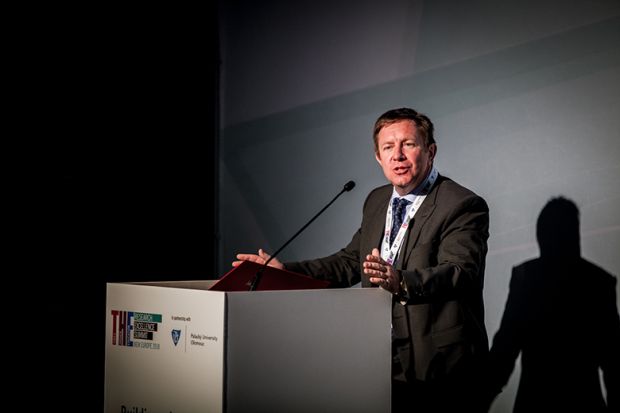“Easy money” from the European Union has made universities in central and eastern Europe “lazy” and dulled the need to compete for funding at the highest level, institutional leaders from the region have warned.
Senior figures in eastern European universities outlined their concerns during discussions at the Times Higher Education Research Excellence Summit: New Europe, held in partnership with the Czech Republic's Palacký University Olomouc, where the summit is taking place between 24 and 26 April.
Brussels’ structural funds, distributed to poorer EU regions to help them catch up with richer parts of the continent, have been used in former communist states to help boost research.
But Jaroslav Miller, rector of Palacký University Olomouc, told summit delegates that although once helpful, the structural funds had become “part of the problem, not part of the solution”.
This “cheap money” was a “crucial” reason for former communist states’ low rates of success in winning grants from the prestigious European Research Council, which are distributed based on the quality of research and go overwhelmingly to western Europe, he told delegates at the conference.
Research teams can obtain money from structural funds without investing much energy, said Professor Miller, leading to “self-satisfaction”.
“We are not forced to be competitive. We are not forced to apply for the highly competitive…ERC grants,” he said.
Jan Konvalinka, vice-rector for research at Charles University in Prague, pointed out that some regions in new EU states – such as Prague – were not eligible for structural funds because their income was now above the EU average. But he acknowledged that dependence on structural funds was an issue. “We are a little bit lazy. We are not hungry enough,” he said.
Another problem, according to Maciej Duszczyk, vice-rector for research and international relations at the University of Warsaw, was that those who won ERC starting grants – the most junior form of award – were not incentivised to go on to win advanced grants because they then had extremely easy access to national funding.
Much of the conference discussion revolved around why former communist states in central and eastern Europe had not closed the research gap with western Europe.
There was still a “Berlin Wall” that divided the continent in terms of research success, said Professor Konvalinka. “This is a major challenge for Europe,” he said. “I don’t think it’s sustainable any longer. If we don’t find a way to overcome this division…Europe will fail.”
He said that emigration was only a “small part” of the problem because there was now little brain drain from the Czech Republic.
Aside from weak funding, academic “inbreeding is still very often general practice”, he said, referring to the low levels of circulation of academics between universities. Departments were often still very independent, making it hard to push them together when necessary, Professor Konvalinka added.
But the region also had to acknowledge that “we are simply not good enough”, he argued. “We should not be victims,” he added.
POSTSCRIPT:
Print headline: East-west gap ‘worsened by EU’s easy money’
Register to continue
Why register?
- Registration is free and only takes a moment
- Once registered, you can read 3 articles a month
- Sign up for our newsletter
Subscribe
Or subscribe for unlimited access to:
- Unlimited access to news, views, insights & reviews
- Digital editions
- Digital access to THE’s university and college rankings analysis
Already registered or a current subscriber? Login





